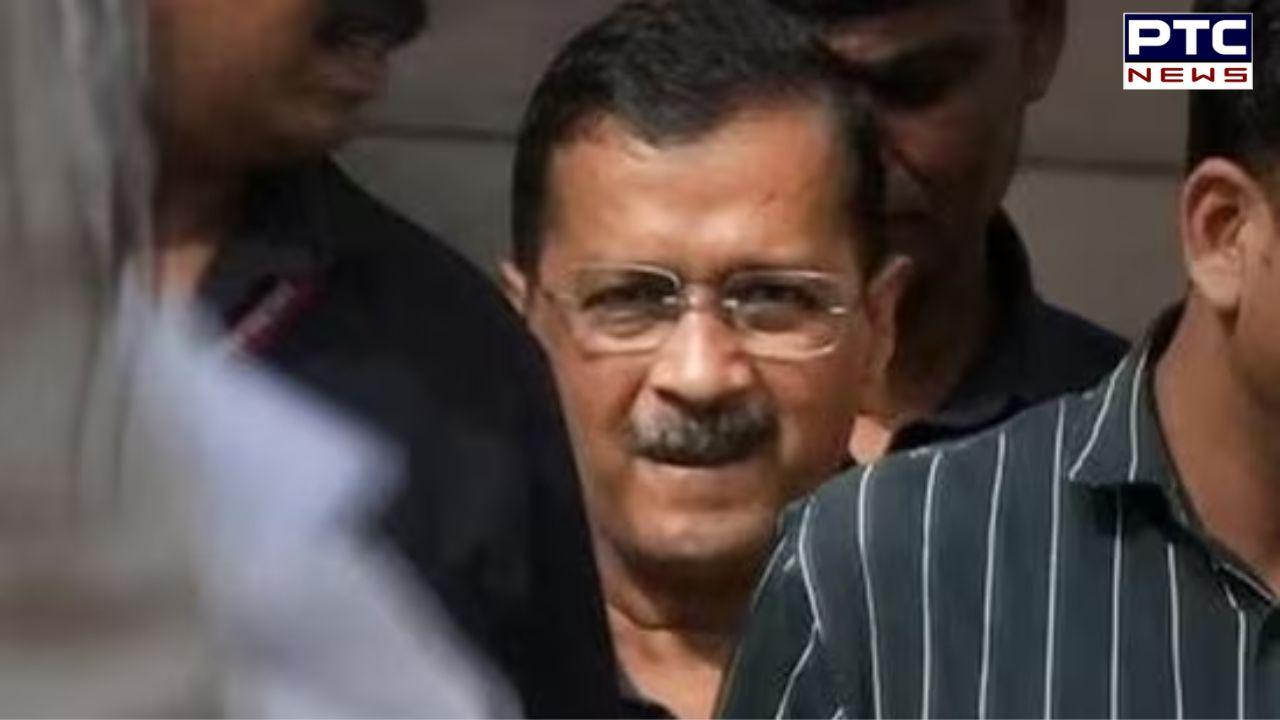- January 18, 2025
- Updated 2:52 am
ED attributes Arvind Kejriwal’s arrest to ‘non-cooperative attitude’: SC affidavit reveals
PTC News Desk: In its affidavit submitted to the Supreme Court, the Enforcement Directorate (ED) pointed fingers at Delhi Chief Minister Arvind Kejriwal’s behaviour, citing his “non-cooperative attitude” as a factor influencing the decision to arrest him. The ED asserted that there were no ulterior motives behind Kejriwal’s arrest, rebuffing any claims of “malafide or extraneous reasons.”
According to the Enforcement Directorate, Arvind Kejriwal’s conduct significantly contributed to their decision to apprehend him. The agency argued that his actions not only hindered their investigation but also provided evidence supporting the necessity of his arrest.
“The accused, by his conduct, has himself contributed and aided the investigating officer regarding the existence of the necessity to arrest, apart from the material in possession of the IO, to form the satisfaction that the petitioner is guilty of the offence of money laundering,” stated the agency in its affidavit.
Responding to Kejriwal’s petition contesting his arrest, the ED dismissed it as lacking merit. They emphasised that the evidence in their possession had been scrutinised by various courts, undermining Kejriwal’s claims of malfeasance.
The agency further elaborated on Kejriwal’s demeanor during questioning, highlighting his evasiveness and non-cooperation, even on matters unrelated to incriminating evidence. They defended the necessity of his custodial interrogation, believing it would facilitate a more comprehensive line of questioning.
Accusing Kejriwal of blatant disregard for the law, the ED portrayed him as uncooperative and defiant, making confrontation with incriminating evidence difficult.
The affidavit also addressed Kejriwal’s history of disregarding summonses, citing his absence in response to nine prior summonses before his arrest.
In response to the ED’s affidavit, the Aam Aadmi Party (AAP) accused the agency of fabricating falsehoods, alleging that they were acting at the behest of the BJP. AAP claimed that the ED’s actions were driven by political motivations rather than genuine legal concerns.
Arvind Kejriwal’s arrest on March 21 stemmed from a money laundering investigation linked to the Delhi excise policy case. The Delhi High Court upheld his arrest on April 9, citing his repeated failure to comply with summonses. Kejriwal subsequently appealed to the Supreme Court, leading to further legal proceedings.
As of April 15, the Supreme Court had requested a response from the ED regarding Kejriwal’s petition, indicating ongoing legal deliberations on the matter.
Recent Posts
- Crown of goddess Kali, gifted by PM Modi, stolen from temple in Bangladesh
- Hezbollah leader survives assassination attempt amid Israeli strikes that kill 22 in Beirut
- ਕ੍ਰਿਕਟ ਦੇ ਬਦਲੇ ਨਿਯਮ, ਹੁਣ ਇਸ ਕੇਸ ‘ਚ ਦੁਬਾਰਾ ਨਹੀਂ ਮਿਲੇਗੀ ਬੈਟਿੰਗ, ਮੰਨਿਆ ਜਾਵੇਗਾ
- ਸਚਿਨ ਤੇਂਦੁਲਕਰ ਦੇ ਬਰਾਬਰ ਪਹੁੰਚੇ ਜੋ ਰੂਟ, ਪਰ ਵਿਰਾਟ ਦੇ ਇਸ ਰਿਕਾਰਡ ਤੋਂ ਅਜੇ ਵੀ ਦੂਰ
- Ratan tata death: ਸਿਰਫ ਵੋਲਟਾਸ ਹੀ ਨਹੀਂ, ਸਵੇਰ ਤੋਂ ਰਾਤ ਤੱਕ ਤੁਹਾਡਾ ਕੰਮ ਟਾਟਾ ਦੇ ਬਿਨਾਂ ਨਹੀਂ ਚੱਲ ਸਕਦਾ
